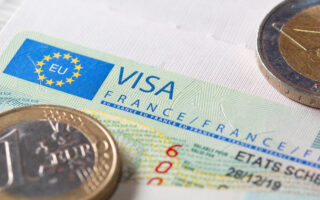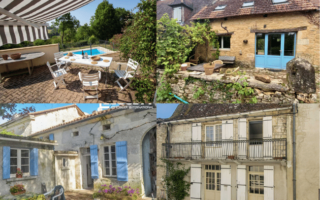French tax: Let me reassure you
An assurance vie’ is a great way to protect your future income from exchange rate loss and inflation, explains Bill Blevins…
Brits living in France face making a loss when transferring funds from sterling to euros. Towards the end of 2008, sterling fell to near parity with the euro and over the year it dropped almost 25% against the single currency. Inflation is also a threat to wealth, even when it is not at headline highs. Over the years, it will reduce the spending power of your savings. While inflation is low at present, compounded year after year it still affects your wealth. If you’re planning to relocate to France, you should consider ways to protect your assets from potential loss due to currency exchange and inflation.
There is an extremely efficient investment structure available for French residents that allows for capital growth and for income to be taxed favourably when withdrawals are made. It is known in France as an assurance vie and is a specialised form of life assurance in which you can hold you own selection of assets protected by a tax wrapper. The structure allows you to pay less tax (often significantly less), which will help you to make up any shortfall due to currency exchange and inflation.
If you plan to live in France and hold UK investments like ISAs and PEPs, which are taxfree to UK residents but not taxfree in France, then it would be well worth considering transferring these monies into an assurance vie. Indeed, a number of diversified assets can be placed in an assurance vie such as equities, bonds and a property fund as well as cash.
Tax savings
There is no income or capital gains tax liability on funds within an assurance vie unless you make a withdrawal and then only the growth in value is taxed. For instance, if the whole portfolio of assets within the policy has grown by, say, 7%, only 7% of the withdrawal is taxable; i.e. 93% of the withdrawal is tax-free.
Another attractive benefit of an assurance vie is that, in most cases, it can reduce your tax rate on investment income and gains down to 0%-18% – well below the tax rate of most other EU countries. French tax law taxes the growth in value element in one of two ways:
1) Scale rates: The growth in value is treated as income liable to your marginal rate of income tax plus social charges.
2) Pr�l�vement lib�ratoire: The growth in value will be taxed at fixed rates (including social charges). The rate of tax is based on the length of time from the commencement of the policy.
If you make a withdrawal but there has been no growth in value from inception, then tax or social charges are not payable.
The pr�l�vement lib�ratoire is a withholding tax. Generally speaking, in the early years, it is likely the pr�l�vement lib�ratoire option will be less favourable, and taxation at scale rates would be more advantageous.
From the ninth year onwards, with the pr�l�vement lib�ratoire option, the first €9,200 for a married couple or €4,600 for a single person/widow(er), of growth withdrawn is tax free, although this exemption does not apply to social charges. Such an election must be made by the 15th of the month following the withdrawal, and the tax and social charges on the withdrawal must also be paid over by this date. Once made, the choice is irrevocable for that withdrawal.
Succession tax
If an assurance vie is set up before becoming a French resident, providing the lives assured are under 70, there is no French succession tax liability.
For French residents, there is now no succession tax due on assets passed to your spouse, a PACS partner, or if the beneficiary is a brother or sister aged over 50 or invalid and living with the deceased for five years preceding the death. If your heirs fall outside these categories (and they would do on the death of the second spouse), you may wish to lower the liability for them. If payment is made on death then there is no French income or capital gains tax due. The life assured need not be a French resident.
If an assurance vie is established after becoming French resident and the lives assured are under the age of 70 when the policy is set up, each beneficiary is entitled to an exemption of €152,500, in addition to any succession tax allowances they may be entitled to. Any amount in excess of this received by a beneficiary is then taxed at a flat rate of 20%, regardless of the relationship that individual has to the deceased. The 20% tax is withheld by the company. If a non-French company, then a new system is being introduced to enable the company to withhold the tax and pay it to the French authorities.
Where any of the lives assured were over 70 when the policy was set up, then normal succession tax rates will apply only to the amount of premiums paid in excess of €30,500. Under this method, the growth in value in the fund is tax free.
An assurance vie can also be useful in avoiding French succession law. If, say, a married man has children from an earlier marriage but prefers to leave assets to his second wife, he can place investments into an assurance vie. The policy would be in his name, written on his life and he would nominate his second wife to receive the proceeds. The value of these investments will automatically be paid to her; the children would not be able to obtain these assets.
Wealth tax
Wealth tax is payable by French residents where total worldwide assets exceed €790,000 (for 2009) including a spouse’s or cohabiting partner’s assets.
The assurance vie may reduce your wealth tax liability. As an assurance vie reduces your taxable income, it may also reduce your wealth tax liability, unless you have a significant amount of other taxable income.
A non-French assurance vie will be exempt from wealth tax for a period of up to five years under a new French law that applies to all nationalities. Anyone arriving in France after 6 August 2008 who was not tax resident in France during the previous five years, will not have to pay wealth tax on their non- French assets for five years.
No one knows what will happen with the sterling to euro exchange rate or inflation in the future. For your retirement in France, past and potential shortfalls can be partially offset by the tax savings made with an assurance vie.
By Bill Blevins.
Share to: Facebook Twitter LinkedIn Email


